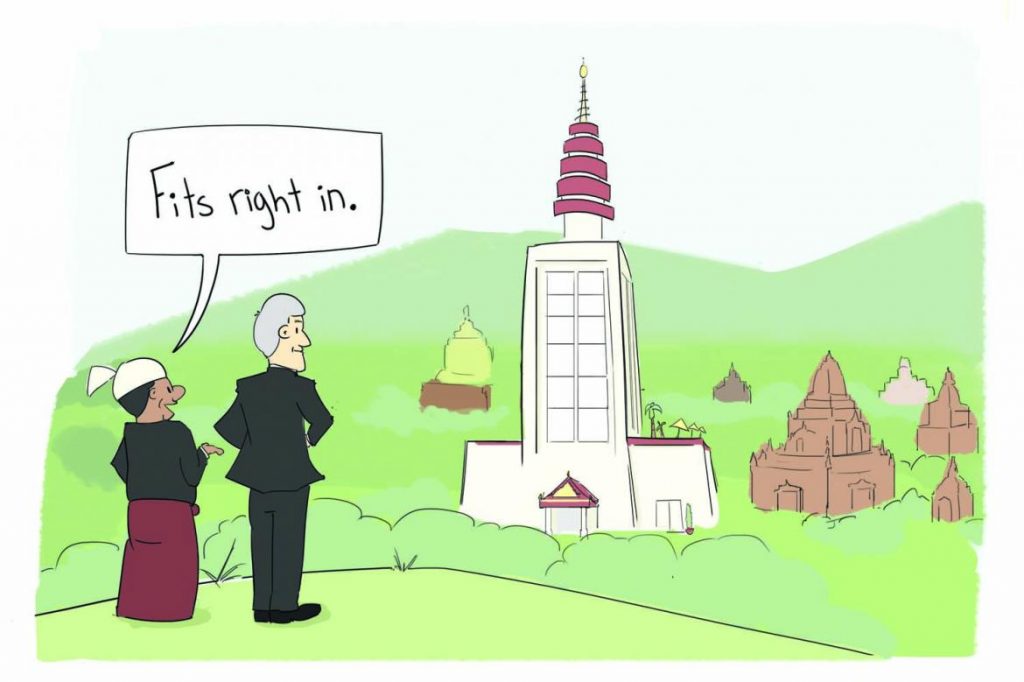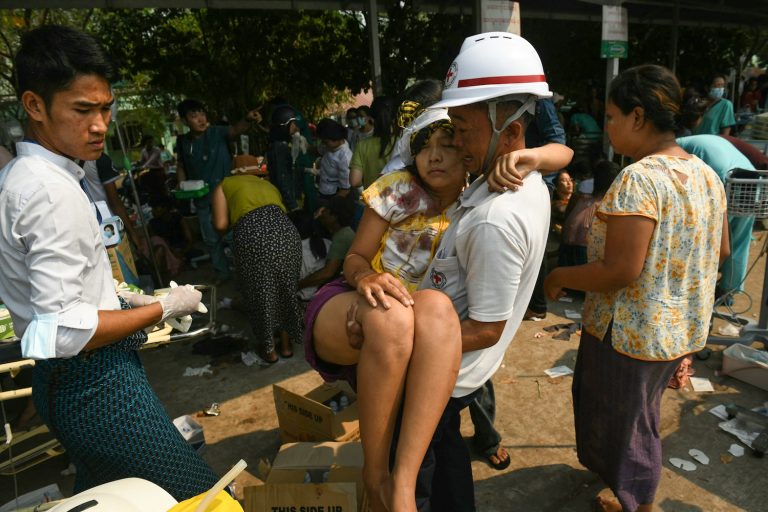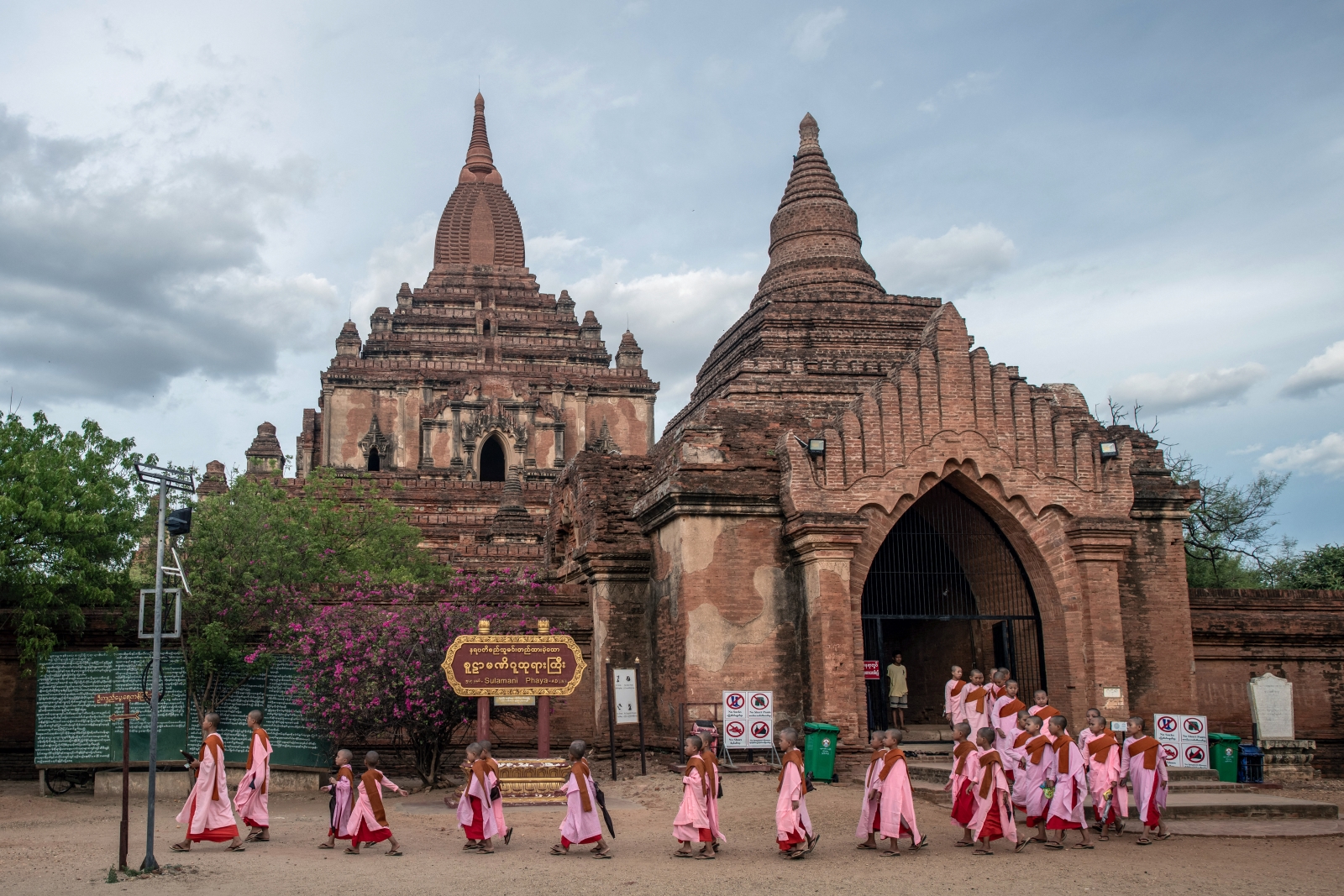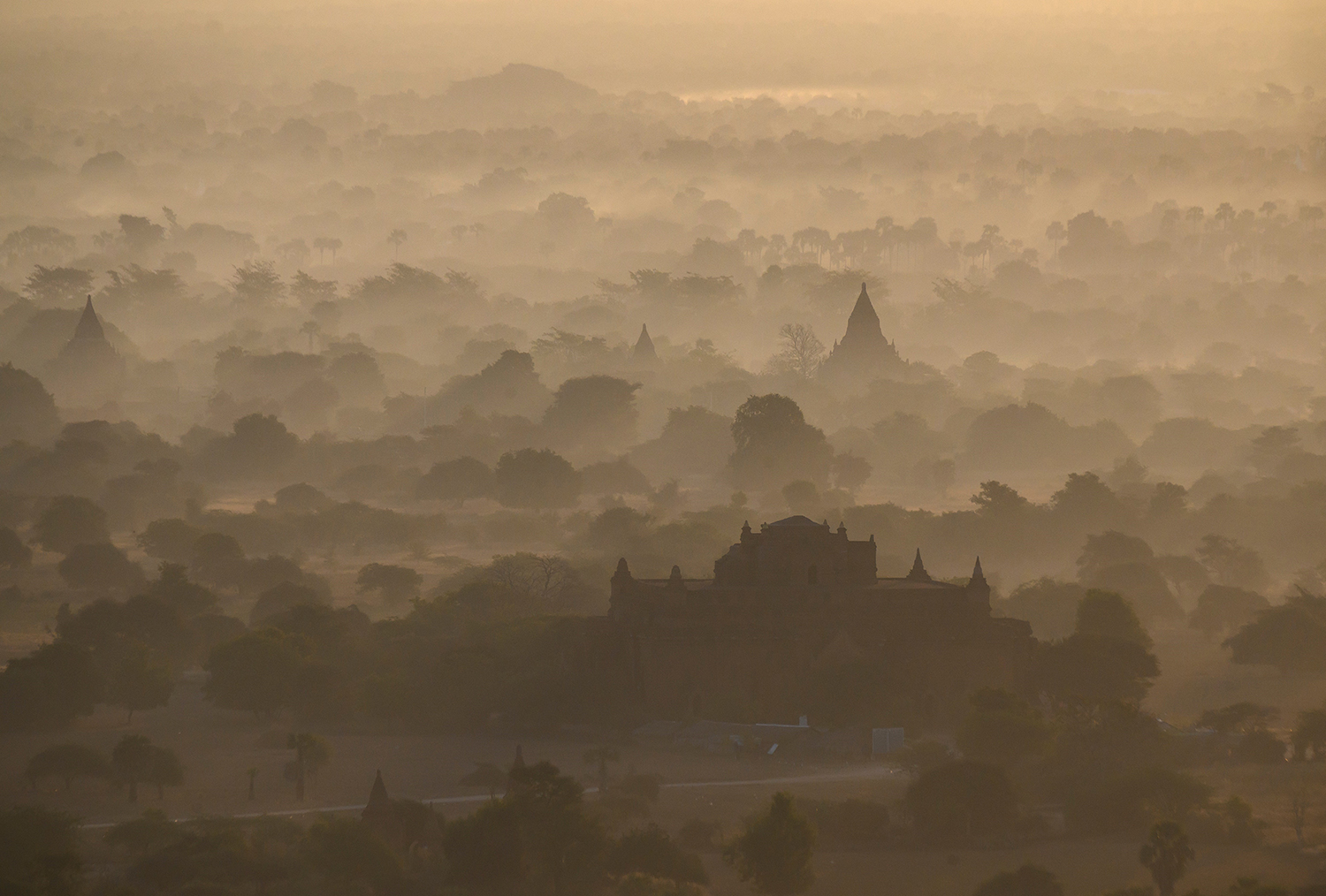Foreign investors should distance themselves from hotel projects being developed around the ancient temples of Bagan in apparent violation of planning rules.
It now seems likely that the World Heritage Committee of the United Nations Educational, Scientific and Cultural Organization will approve Myanmar’s application to have Bagan added to the World Heritage List at a meeting from June 30 to July 10.
For Myanmar, it will end a 25-year wait since it first applied for Bagan to be listed.
It is certainly just recognition for one of the most significant and stunning archaeological sites in Southeast Asia, if not Asia.
But inclusion, if it happens, will be despite rather than because of the present government. Its management of Bagan has been nothing short of disastrous.
Some of the roadblocks to World Heritage listing are indeed legacies of military misrule, but many have been created in the past three years. Regional authorities have consistently ignored the best advice of conservation experts, instead giving the green light to General Administration Department plans to approve hotel developments, build viewing mounds and toilet blocks, and undertake other landscaping works.
Support more independent journalism like this. Sign up to be a Frontier member.
This reflects a power dynamic within government in which powerful entities and interest groups are routinely able to sideline area experts. In this case, the Department of Archaeology has little ability to influence governance at Bagan. The Ministry of Religious Affairs and Culture and the Ministry of Hotels and Tourism are the poor cousins to, say, the Mandalay Region government and the GAD.
While areas of Bagan that have been altered by landscaping or the construction of viewing mounds can potentially be restored to their original condition, it’s much harder to unwind a hotel development in which investors have pumped tens of millions of dollars.
Bagan has suffered enough from such planning mistakes; for decades, zoning rules at Bagan were bent at will by the generals. The decision in the late 1990s to allow a select few companies to develop hotels inside Old Bagan was a travesty that should never be repeated.
Unfortunately, it is being repeated. Both Eden Group and Myat Min Company are developing hotels in areas where zoning rules forbid the construction of permanent structures.
Eden is building in Old Bagan, within the archaeological zone and close to numerous ancient monuments. Myat Min’s project is south of New Bagan, but within a still-protected “buffer zone” and close to two major sites.
To attain World Heritage status, the government has promised to remove all hotels from protected areas by 2028. Why would a company invest a significant sum – reportedly more than US$50 million, in the case of Eden – to develop a hotel that it might only be able to operate for eight or nine years? There would be no way to generate a return on investment – unless, of course, you were pretty confident that the government would never enforce the 2028 deadline.
What unites the Eden and Myat Min projects is the apparent involvement of Western companies.
Eden chairman U Chit Khine has been quoted in local media as saying that US firm Hilton will operate his Bagan property, while France’s Accor, parent company of Novotel and other hotel brands, has a close relationship with Myat Min, having worked together on several hotels, and is reportedly planning to run its establishment in Bagan.
These partnerships have not been formally announced. But it appears as though the economic benefits of working with Western hoteliers are incentivising local developers to ignore planning rules, and in the process are putting Bagan’s potential for World Heritage listing at risk.
Investment is coming into Bagan’s tourism industry from other foreign sources, of course. Last month, Thailand’s Centara signed a memorandum of understanding with KMA Hotel Group to develop two new hotels in Bagan. KMA already operates Bagan Hotel, in a protected area of Old Bagan, and any redevelopment of the site would seemingly be in breach of zoning rules.
But Western companies spend a lot of time talking up their corporate standards and ethics. Well, now is the time to walk the walk. Hilton and Accor should disassociate themselves from the Eden and Myat Min projects, and make clear they will not partner on any hotels that are in the archaeological zone or buffer zone where development is not allowed.
That would be the responsible thing to do.







